

Marvel Comics Presents ran for 175 issues from 1988 until 1995. Each issue included four eight-page stories with typically two or three on-going features (and no ads). It spotlighted some of the leading creators of mainstream comics over a period of precipitous economic growth and even more rapid decline. Reading through it is an opportunity to revisit any number of weird aspects of 90s superhero comics. This blog is a primitive, oddly regimented, manifestly scattershot crawl through an often disappointing but occasionally splendid comic. All image copyrights are Marvel's. Issue credits linked below. Updated on Wednesdays.
Marvel Comics Presents #12: Early February 1989(12.11.19)
Credits: grandcomicsdatabase
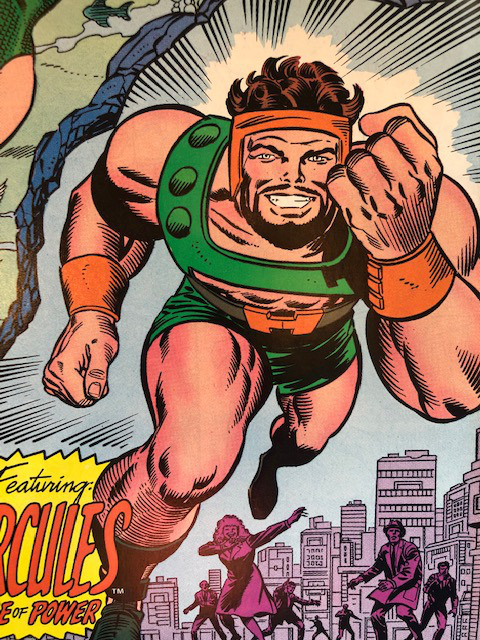
Ron Frenz (with Joe Sinnott inks) offers up a Man-Thing and Colossus cover divided into two separate columns, each with their own Slver Age word bills. The resulting images have a modest charm but there are three issues: (a) it's entirely unclear what's afoot in either, (b) they've been cropped at a peculiar size, and (c) it's simply unclear whether we're witness homage or wooden design and yet worse inking. The full-tilt Kirby homage of Hercules on the rear would likely have been a better choice, since it leans into the matinee star charm that Hercules offers up as an ersatz Thor.
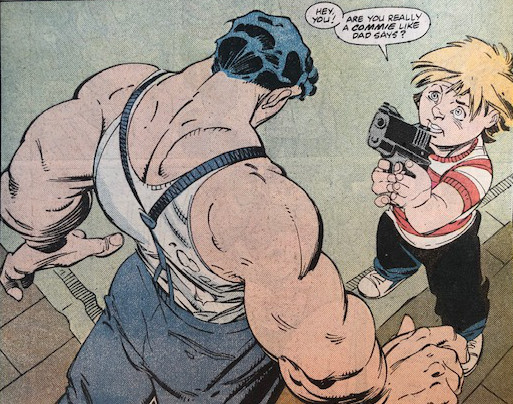
A. Colossus, "God's Country" [3/8]
The strongest installment thus far. Leonardi opens with an appealing splash and nicely rendered fight and subsequent chase scene. Panels that might otherwise be overstuffed with characters get capably handled through some stripped down, bouncy linework. Increasingly, it feels like Leonardi is an under-appreciated linkage between late Kirby homage era and the Image era bodily lunacy. Narratively, we're moving from an initial dust-up to Colosuss being barricaded inside the home of a vaguely extremist American family who've already been sold out by the local police. Nocenti's dialogue sheds plausibility for gravity with Bruce remarking about the social contract and the inherent superiority of the US to the USSR. The ambient fanaticism pays off in the final panel, however, with Zackery pulling a handgun on Colossus and asking whether he's a communist. It's sufficiently left field to make the Nocenti "let's make all subtext into text" seem noticeably less stilted. Increasingly fun stuff.
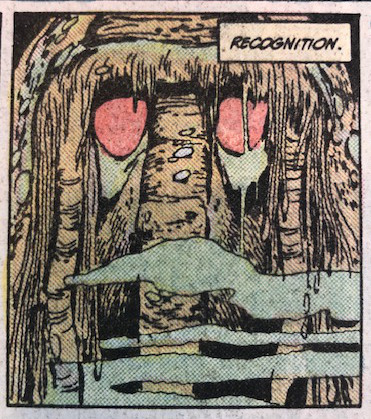
B. Man-Thing, "Elements of Terror" [12/12]
Sutton returns to take up full art duties for this final installment and it's a free-for-all laced with the porous, gooey action one would hope for. Choate and his stegosaurus-like platoon collide with the other remaining players and, eventually, Man-Thing emerges from the swamp to set Choate ablaze. Gerber pays off the Washington intrigue with pitch black comedy--grotesque super-soldiers flying themselves to the USSR chatting about squashing Grape (Gorbachev). Sutton's work really is exemplary, given the space constraints, merging Marea's corpse into Man-Thing's reconstituted body and articulating the skeletal and musculature of the wildly mutated Choate with an icky coherence.
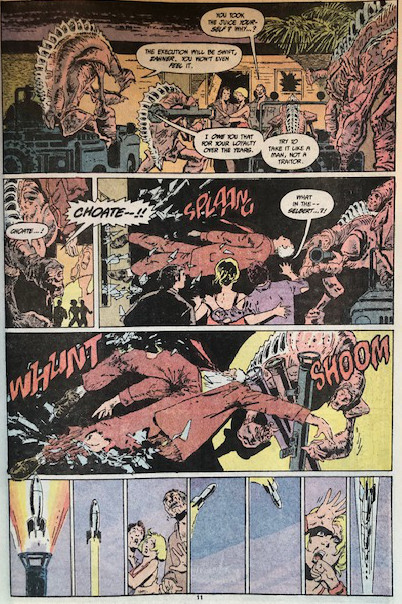
Looking back, I'd fail miserably if I attempted to reconstruct what came before, but at no point has this feature failed to surprise or deliver something palpably grotesque. Ultimately, this is what one should hope for from Man-Thing stories. It'll be a lengthy stretch before anything in the horror genre returns and it marks a missed opportunity for MCP.
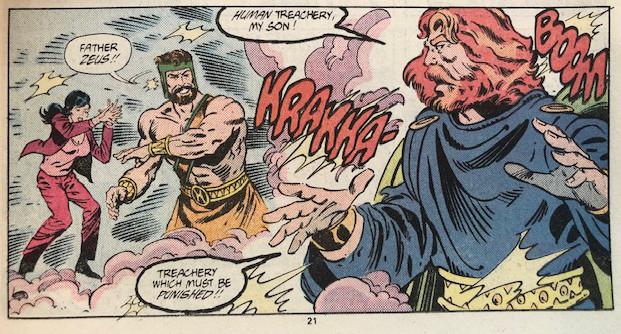
C. Hercules, "Noble Fathers Have Noble Sons"
Chris Henderson's Hercules shoots for something akin to a character study and lands somewhere around diverting gag piece. Tasked with writing a hit piece, a Daily Bugle reporter tails Hercules only to catalogue his moral decency and formidable carousing. This culminates in a test from his father with Zeus insisting that Hercules murder a criminal, but, upon refusing to do so, he's (as should come as little surprise) commended by Zeus. The tension never hits anything close to a boil, but Heck deserves some credit for nicely handling the flip/reveal of Zeus' real intentions. It's notable that the reporters monologue, told in thought balloons, would, five years later, certainly be embedded in box captions. So, in that regard, we're seeing some of the formal features of storytelling shift under the feet of MCP. The perennial question of what Hercules offers in narrative possibilities that Thor doesn't remains unanswered, but helmet does seem markedly easier to draw.
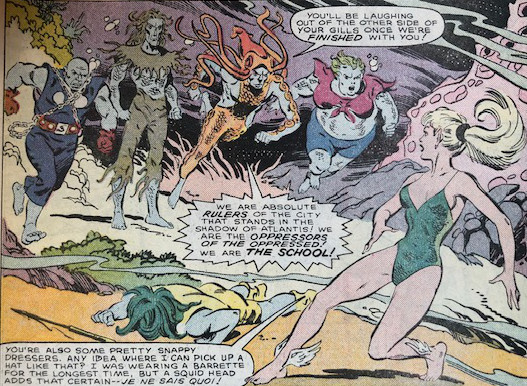
D. Namorita, "Spring Break"
Lobdellian chit-chat and inane repartee dominate this feature with Namorita bemoaning the woes of NYC only to discover the previously unrecognized grit and grime of Atlantis. The trip home is briefly interrupted with a lame duck scrape with a perfectly silly group of Atlantean baddies, but not before everyone has a chance to say some resoundingly trite things. (Officially, the villains are called The School, because fish.) The latter half is raced through to the point where all but Namorita's motives seem totally opaque. If there was any genuine hope for the rhetorical impact of the "you can never go home again" cliche, it's clear such hope was misplaced. Diana Albers lettering stands out for the wrong reasons here with some serious missteps, which compounds the awfulness of Lobdell's Namorita and, generally, the stifling banality of the narrative worlds this guy cooks up.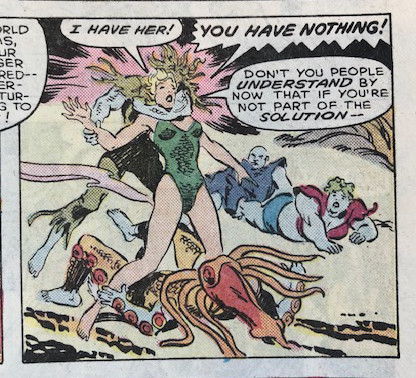
Power Ranking: Man-Thing (A-), Colosuss (B+), Hercules (B-), Namorita (C-)